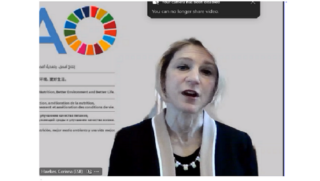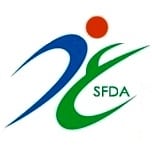The government is stepping into an arena it has previously tried
to stay clear of – the certification of New Zealand exports as
“halal”, or “clean” in terms of Islamic religious rules.
New Zealand Food Safety Authority (NZFSA) has announced that
organisations which certify halal meat for export will be subject
to government oversight “to standardise halal certification and
improve assurances to our trading partners”.
“While the proposed model focuses currently on meat exports, it
could be extended to include dairy products in the future,” said
NZFSA market access director Tony Zohrab.
NZFSA has added halal export certification for Indonesia,
Malaysia and the Middle East to the list of additional assurances
it provides to importing countries.
Halal certification in New Zealand has not previously been
directly regulated by government officials.
But trade and food officials have been dragged into two big rows
since 2005 with Malaysia and Indonesia, after meat companies failed
to solve the problems.
In both cases there has been speculation by New Zealand farmers
that the countries are seeking to clip the ticket on other nations’
produce by insisting on their own standards.
New Zealand has only two certifying authorities, New Zealand
Islamic Meat Management (NZIMM) and the Federation of Islamic
Associations (FIA) and Indonesia has said it will no longer
recognise either.
NZIMM mainly certifies meat, and the FIA does most of the dairy
exports.
Trade Minister Tim Groser has said Indonesia’s planned ban in
2010 on $100 million of NZ beef imports – and potentially $450m
worth of dairy exports – requires a longterm solution.
Now new proposals for the halal trade have been announced by
NZFSA “to provide a greater level of commercial certainty for
exporters and halal certifiers in the future”.
“We want to improve and future proof the existing certification
system so it delivers robust and credible assurances … and has
the confidence of all halal markets,” Zohrab said.
Instead of leaving the meat and dairy industries to oversee the
certification agencies, new rules will specify standards of
competence, which will be audited.
These standards will allow ” any approved halal organisations to
offer halal export certification services to the meat industry”
.
Zohrab said there was a lot of international activity on
development of halal standards and the extension of halal
principles to other products.
Key proposals include:
Zohrab said Islamic authorities in the destination markets will
determine which New Zealand bodies can provide certification for
their market, but did not indicate whether new certification
agencies backed by Indonesia or Malaysia were expected to be set up
here.
The Indonesian Government has said it is considering whether it
will recognise the New Zealand certification companies or will
require certification from an Indonesian source.
Prime Minister John Key last week told Federated Farmers New
Zealand has a chance to be a food basket for the aspiring middle
classes in Asia.
The market would expand as the middle classes of Malaysia,
Indonesia, the Gulf States, and other Islamic nations grew.
“There are some sensitive issues around halal certification and
the government is working through these with Malaysia and
Indonesia,” he said.



